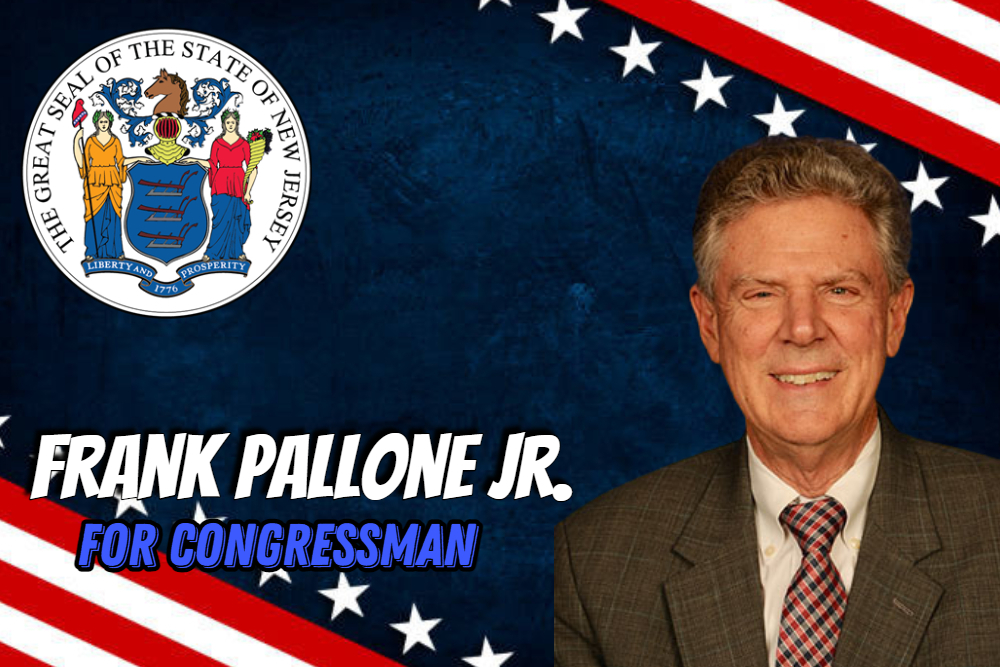Committee Leaders Urge EPA to Address Clean Drinking Water in Underserved Communities Around the Country, including New Jersey and New York
Washington, DC – Congressman Frank Pallone, Jr. (NJ-06) and Congressman Paul Tonko (NY-20) today called on Environmental Protection Agency (EPA) Administrator Michael Regan to ensure that the funding to replace lead services lines in the Bipartisan Infrastructure Law is equitably allocated to underserved communities, including those in New Jersey and New York. Environmental advocates in New Jersey also share their concern that funding from the law should be distributed equitably.
Pallone and Tonko ensured enactment of key provisions in the Bipartisan Infrastructure Law for drinking water infrastructure, including $15 billion for the replacement of lead water lines and $10 billion to address PFAS contamination. In March, Pallone held a hearing in his Energy and Commerce Committee on upgrading water infrastructure and lead service lines.
Funding to states to replace lead service lines is provided through the EPA’s Drinking Water State Revolving Fund (SRF). Distribution of funding is based on a formula through the Drinking Water SRF and will determine state allocations in the next round of funding. In a letter to the EPA Administrator, Pallone and Tonko requested that the agency complete their mandated assessment of replacement costs for lead service lines in its Drinking Water Infrastructure Needs Survey and Assessment and incorporate the results and demonstrated need into future funding allocations.
“Everyone deserves access to safe and clean drinking water. As Chairman of the Energy and Commerce Committee, removing lead service lines has long been one of my top priorities. In my home state of New Jersey, too many families still receive water in their homes through lead water lines. I want to make sure that the funding Congress authorized in the Bipartisan Infrastructure Law for lead service line replacement will be equitably distributed to the states with the greatest need,” said Pallone. “The funding in the Bipartisan Infrastructure Law is set to provide a huge boost in our efforts to finally address the long-standing issue of lead in drinking water, but it requires equitable distribution. We shouldn’t leave overburdened communities to face risks related to lead pipes for even longer.”
“We are enormously thankful for Congressman Pallone's leadership on the issue of lead in drinking water and his interest in equitably allocating federal funds to the states that need it most. New Jersey is generally considered to have one of the highest concentrations of lead service lines in the country,” said Diane Schrauth, Policy Director, New Jersey Future. “According to New Jersey Future's research, the proposed distribution of funds under the federal IIJA legislation would provide less than 10% (i.e., $241 million) of the state's projected need ($2.8 billion). By changing the future allocation to reflect the true need, Congress can ensure that children and families are protected from the damaging effects of lead poisoning.”
“The only fair and equitable way for the Biden Administration to advance its goal of removing every lead service line in the next decade is to deliver funding to the states that need the most help, and quickly. No longer can we afford to shortchange states with the most lead service lines,” said Cyndi Roper, Senior Policy Advocate, Natural Resources Defense Council.
“As a resident of Newark, NJ, I am acutely aware families and children most at risk should receive help first. That is the approach that should be taken to get lead water pipes out of the ground; start with communities impacted the worst. Otherwise, low-income, environmental justice communities will be at the back of the line, again, before they can trust the water coming from their taps,” said Yvette Jordan, Chair of the Newark Education Workers Caucus.
“It is critical to fix the funding allocation because states with a small number of lead service lines are getting as much as $10,000 per line, and states like Ohio, New Jersey, Michigan, and New York with the most lead service lines and the greatest need are getting as little as $109 per line. Recent increases in construction costs indicate that most lead service line replacements will cost more than $5,000 a piece,” said Elin Warn Betanzo, Safe Water Engineering, LLC.
A copy of the letter is available here.
Original source can be found here.


